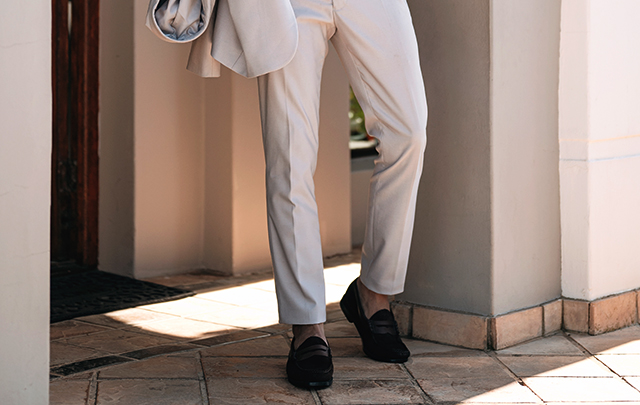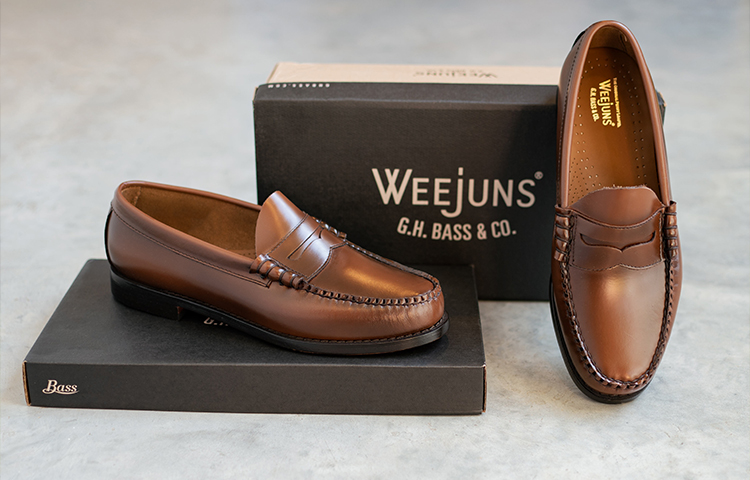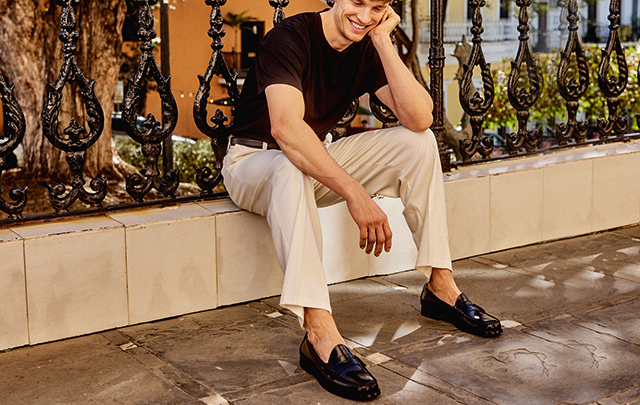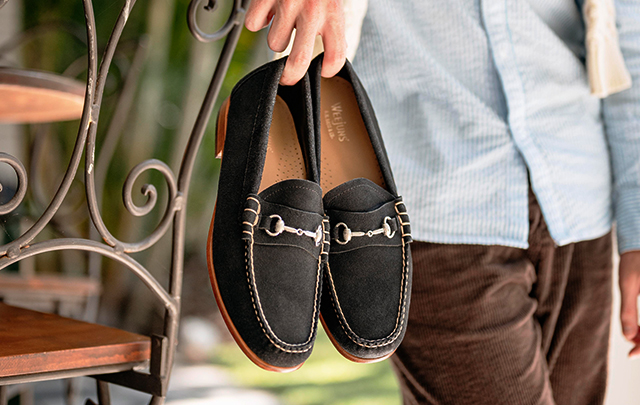The Psychology of First Impressions

Do first impressions really matter?
This is the big burning question that individuals have often asked themselves in various situations.
Perhaps you are meeting your partner's family for the first time, or you are heading to a job interview, or maybe you’re simply attending a social event that requires interactions with new people - whatever the scenario is, you’re probably feeling nervous about how others will perceive you for the first time.
Now, many of us might be questioning why? Why do first impressions matter? Shouldn’t we learn not to judge a book by its cover?
Well, we’ve done the research into how the mind operates, and we’ll be laying out all the information for you: why first impressions matter and how G.H.BASS can help you nail it every time!
Read on to learn more.
How Are First Impressions Formed In Your Brain?
From a processing point of view, research has found that your brain can form a snap-based judgement in as little as 100 milliseconds - that’s about a tenth of a second! And, these judgments are made automatically, based on unconscious processing.
Three key facets of evaluation take place when forming first impressions.
1. Visual Cues
Visually, your eyes are trained to take in various details, such as the face shape, eyes, mouth, posture and specific characteristics.
This helps your brain determine aspects such as familiarity, possible intentions or trait inferences. Your eyes also pick up dynamic visual cues, such as facial expressions and gestures.

2. Emotional Evaluation
During this stage of an interaction, your brain activates the amygdala and insula to alert your body to the emotional cues that you are witnessing. This refers to those gut feelings you get when either feeling threatened by an individual or, conversely, when you feel drawn to them.
These emotional signals often come from what you hear and see.
3. Social Integration
Finally, other sections of your brain, namely the Dorsomedial Prefrontal Cortex and the Orbitofrontal Cortex, make inferences about people’s traits by integrating your social knowledge and also update your impression of them based on the overall interaction.
So, for example, if you meet someone who reminds you of someone else you already know, you might initially perceive them as having the same traits as your familiar. But throughout the interaction, your brain will begin to update these initial gut inferences.
So, Why Do First Impressions Stick?
Now, after breaking down the science behind how your brain functions, you might be wondering why first impressions tend to stick - especially when the brain can update the information when new details are received.
That’s where the catch comes in! Because, while your brain actively notes new information during interactions with this new individual, it tends to zone in on the ones that confirm your preconceived notions.
Therefore, this is precisely why it is so difficult to change a first impression - our brains are wired to make them quite literally stick!
But, luckily for you, you don’t have to leave it to chance. With G.H.BASS on your side, confidence is yours - enough to turn heads and own the room.
Here’s How To Make A Good First Impression In 5 Steps
1. Preparation
Preparation is key to many important events. When you prepare yourself beforehand, it relieves stress and helps you feel more confident in your approach. Try preparing some conversation starters or researching the people you will be meeting.
2. Dress The Part
What you wear shows your social awareness, pride in your appearance, and your creativity.
On a psychological level, colours and textures can set an emotional tone – so opt for bright or warm colours to appear approachable.

3. Body Language
Body language is a large part of communication that is often underutilised.
Good posture, a warm smile and solid eye contact can create an inviting space during your interaction. Try to avoid closed postures such as crossed arms during interactions, as this is considered negative body language and sets a tone of distance or unapproachability.
4. Be A Good Communicator
Being a good communicator requires a good balance between talking confidently and also listening with intention, so that you can respond thoughtfully.
5. Be Authentic
Just breathe and be yourself. Letting your true personality shine is what makes you unique; so why hide it?
Think of it like our Weejuns: a Weejuns Venetian will never try to be a Jetty. The point is, if you misrepresent who you are in a first meeting, you’ll be stuck playing a role forever!
Let Your Style Do Some of The Talking
Stepping into a room to make a first impression can be as easy as stepping into one of our convenient slip-on loafers.
If the nerves seem to be getting to you, why not let your style do some of the talking?
Our collection of handcrafted loafers has represented timeless appeal and classic elegance over the years. Today, nothing says class quite like a pair of G.H.BASS Weejuns.

Whether you are looking for a pair that adds a touch of whimsy or a pair that matches your boldness, our collection represents the uniqueness of every personality.
Ready to make a good first impression? Walk the walk in a pair of G.H.BASS today!










